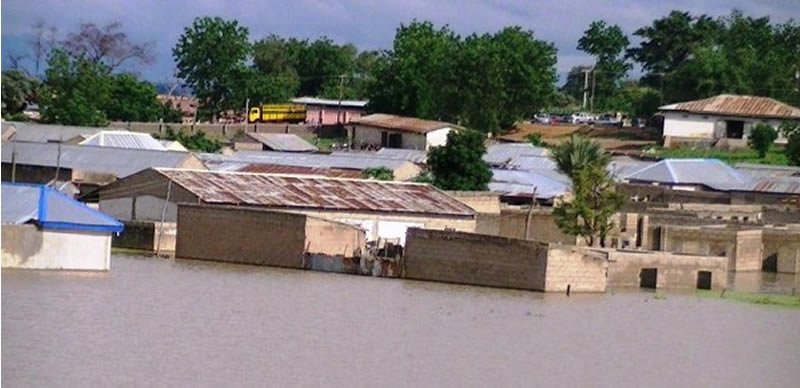
It disclosed this in Abuja while providing the general highlights of the 2023 Annual Flood Outlook put together by the Nigeria Hydrological Services Agency and presented to the public by the Minister of Water Resources, Suleiman Adamu.
“The forecasts for 2023 AFO shows that 178 Local Government Areas in 32 states of the federation and the Federal Capital Territory fall within the highly probable flood risk areas,” the minister stated.
He added, “224 Local Government Areas in 35 states of the federation including the FCT fall within the moderately probable flood risk areas. The remaining 402 Local Government Areas fall within the probable flood risk areas.”
The minister outlined the highly probable flood risk states to include Adamawa, Abia, Akwa-Ibom, Anambra, Bauchi, Bayelsa, Benue, Cross River, Delta, Ebonyi, Ekiti, and Edo.
Others include Gombe, Imo, Jigawa, Kaduna, Kano, Kebbi, Kogi, Kwara, Lagos, Nasarawa, Niger, Ogun, Ondo, Osun, Oyo, Rivers, Sokoto, Taraba, Yobe, Zamfara and the Federal Capital Territory.
For probable flood risk areas between the months of April and November 2023, Adamu said the level of floods in this category was expected to be high in terms of impact on the population, agriculture, livelihood, livestock, infrastructure and the environment.
“Part of 66 LGAs across the country fall within the highly probable risk areas in the months of Apnl, May and June, while part of 148 LGAs fall in the months of July, August and September, and part of 100 LGAs in the months of October and November 2023,” he stated.
The water resources minister further explained that a moderate impact level of floods were expected in parts of 41 LGAs within the months of April, May and June; and in parts of 199 LGAs within the months of July, August and September; as well as parts of 73 LGAs within the months of October and November 2023.
He said the AFO by NIHSA also showed that coastal flooding would be experienced in Bayelsa, Cross River, Delta, Edo, Lagos, Ogun, Rivers and Ondo states due to rise in sea level and tidal surge, which would impact on fishing, wildlife habitation and river navigation.
The report stated that flash and urban floods would be experienced in urban city centres across the country.
“Among these cities are Lagos, Kaduna, Suleja, Gombe, Yola, Makurdi, Lafia, Asaba, Port Harcourt, Yenagoa, Ibadan, Abeokuta. Benin City, Bernin Kebbi, Sokoto, Lokoja, Maiduguri, Kano, Oshogbo, Ado-Ekiti, Abakaliki, Awka, Nsukka, Calabar and Owerri,” Adamu stated.
Meanwhile, the minister pointed out that the AFO was presented to the public on Friday to help the federal and state governments to better prepare for and respond to potential flood events.
“As we learn and recover from the catastrophic effects of the 2022 flood disasters, I have the strong view that the 2023 Annual Flood Outlook will serve as a veritable tool for effective strategic planning to avert loss of lives and property through adequate, coordinated and effective flood early warning and sensitisation, awareness campaigns, improved flood mitigation strategies and preparedness for risk reduction by all stakeholders,” he stated.





